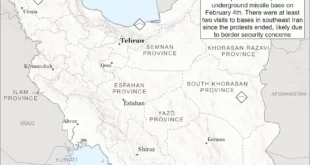Oil rose above $92 a barrel for the first time in New York after the US charge Iran with baseless accusations and stepped up pressure on foreign companies to cut ties with the Middle East oil producer. Crude oil was also pushed higher as Turkey warned of a wider military assault into northern Iraq and called on the US to join the fight. Turkey’s army shelled suspected militant camps on the Iraqi side of the border.
“The door is open to $100,” said Kevin Norrish, energy analyst at Barclays Capital Inc. in London. The dispute between the US and Iran will “continue to ratchet up in terms of tension.”
Record prices swelled profits at oil companies including Royal Dutch Shell Plc and Petro-Canada last quarter, while increasing costs for consumers. Ticket prices for intercontinental business-class flights will climb by between 5 percent and 8 percent next year as airlines pass on jet fuel costs, American Express Co. said in a forecast this week.
Crude oil for December delivery rose as much as $1.76, or 2 percent, to $92.22 a barrel in electronic trading on the New York Mercantile Exchange, the highest since oil futures began trading in 1983. It traded at $91.22 at 10:55 a.m. London time. Prices are 51 percent higher than a year ago.
Yesterday the contract jumped $3.36, or 3.9 percent, the biggest one-day gain since April 23.
Record oil prices are causing other energy commodities such as electricity to breach new highs, raising concerns that inflation will accelerate and suppress growth in the global economy. The Group of Seven industrial nations said in a statement last week that high crude levels will moderate growth.
“Growth in OECD countries will be dented by these kinds of levels already,” said Eugen Weinberg, a commodities analyst at Commerzbank AG in Frankfurt. “We’ll probably see some slowdown and some negative effects from the oil price.”
Brent crude oil for December settlement rose as much as $1.82 to a record $89.30 a barrel on the London-based ICE Futures Europe exchange. It was at $88.07 at 10:55 a.m. local time.
Electricity prices in Germany, Europe’s biggest market, rose to a record for a second day. Next-year power traded as high as 61.95 euros a megawatt hour, according to data from GFI Group Inc.
Supply agreements for fuels including natural gas are linked to the crude price with a time-lag of about six months, meaning today’s record oil prices will lead gas-fired generators in Germany to pay more for their fuel in 2008.
European Union carbon dioxide emission permits for December 2008 also rose, reaching 23.35 euros ($33.54) a metric ton, their highest since June 15, on London’s European Climate Exchange.
“Anything that happens in Iran is important to the market because of its position as a key exporter,” said Michael Davies, an analyst at Sucden (U.K.) Ltd. in London. “The sanctions are going to be yet another thing to encourage the bulls.”
Turkey said it may step up military action in northern Iraq and called on the US to join the fight as the army shelled suspected militant camps over the Iraqi border.
“When you’re talking Iran and Iraq, two of the biggest holders of oil reserves, no wonder markets are nervous,” said Gavin Wendt, senior resources analyst at Fat Prophets in Sydney.
The Organization of Petroleum Exporting Countries, supplier of more than 40 percent of the world’s oil, has said it would boost production by about 500,000 barrels a day, starting Nov. 1. The group doesn’t plan additional output increases, even with record oil prices, Venezuelan Energy Minister Rafael Ramirez told reporters in Caracas yesterday.
 Eurasia Press & News
Eurasia Press & News



